
The Enchanting Kashmir Great Lakes: A Trekker's Paradise
Nestled in the heart of the Himalayas, the Kashmir Great Lakes are a breathtaking spectacle of nature. This trek unveils a chain of stunning alpine lakes, each more beautiful than the last. As you traverse through lush meadows, dense forests, and rugged terrains, the pristine beauty of the lakes reflects the towering snow-capped peaks. The route offers a perfect blend of adventure and serenity, making it a must-visit for nature lovers and trekking enthusiasts alike. The journey begins from Sonamarg, a picturesque town known for its golden meadows. As you ascend, the landscape transforms dramatically, revealing the shimmering lakes like Vishansar, Kishansar, and Gadsar. Each lake has its unique charm, surrounded by wildflowers and framed by majestic mountains. The trek also offers glimpses of local wildlife, including the elusive Himalayan marmots and a variety of bird species, adding to the allure of the experience. Apart from the natural beauty, the trek is also a cultural immersion. Interactions with local shepherds, who graze their flocks in these high-altitude pastures, offer insights into the traditional way of life in Kashmir. The warm hospitality and simple lifestyle of the locals provide a refreshing contrast to the grandeur of the surroundings, making your visit to the Kashmir Great Lakes a truly enriching experience.
Local tips in Kashmir Great Lakes
- Best time to visit is from June to September when the weather is pleasant and the meadows are in full bloom.
- Carry sufficient warm clothing as temperatures can drop significantly, especially at night.
- Hire a local guide to enhance your trekking experience and ensure your safety.
- Acclimatize properly before starting your trek to avoid altitude sickness.
- Pack light but ensure you have essentials like a first-aid kit, water purification tablets, and energy snacks.
The Enchanting Kashmir Great Lakes: A Trekker's Paradise
Nestled in the heart of the Himalayas, the Kashmir Great Lakes are a breathtaking spectacle of nature. This trek unveils a chain of stunning alpine lakes, each more beautiful than the last. As you traverse through lush meadows, dense forests, and rugged terrains, the pristine beauty of the lakes reflects the towering snow-capped peaks. The route offers a perfect blend of adventure and serenity, making it a must-visit for nature lovers and trekking enthusiasts alike. The journey begins from Sonamarg, a picturesque town known for its golden meadows. As you ascend, the landscape transforms dramatically, revealing the shimmering lakes like Vishansar, Kishansar, and Gadsar. Each lake has its unique charm, surrounded by wildflowers and framed by majestic mountains. The trek also offers glimpses of local wildlife, including the elusive Himalayan marmots and a variety of bird species, adding to the allure of the experience. Apart from the natural beauty, the trek is also a cultural immersion. Interactions with local shepherds, who graze their flocks in these high-altitude pastures, offer insights into the traditional way of life in Kashmir. The warm hospitality and simple lifestyle of the locals provide a refreshing contrast to the grandeur of the surroundings, making your visit to the Kashmir Great Lakes a truly enriching experience.
When is the best time to go to Kashmir Great Lakes?
Iconic landmarks you can’t miss
Dal Lake
Explore the enchanting Dal Lake in Srinagar, a stunning natural gem surrounded by mountains and rich cultural heritage, perfect for relaxation and adventure.
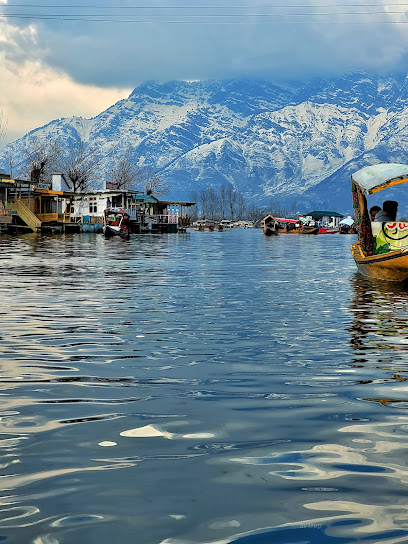
Pari Mahal
Discover the enchanting beauty and historical significance of Pari Mahal, a Mughal garden offering breathtaking views of Dal Lake in Srinagar, Kashmir.
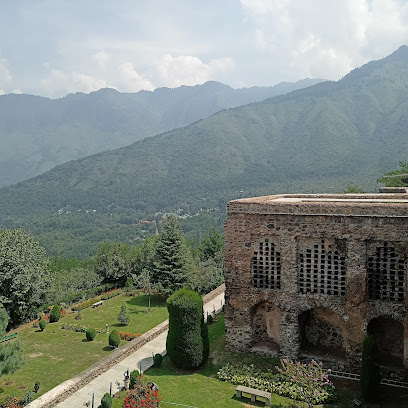
Overa Aru Wildlife Sanctuary
Experience the breathtaking beauty and rich biodiversity of Overa Aru Wildlife Sanctuary, a hidden gem in the heart of Jammu and Kashmir.
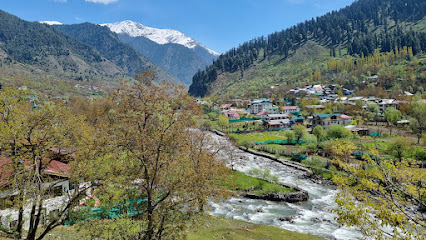
Botanical Garden, Kokernag
Experience the breathtaking beauty of the Botanical Garden in Kokernag, a lush paradise in the heart of Jammu and Kashmir, perfect for nature lovers.
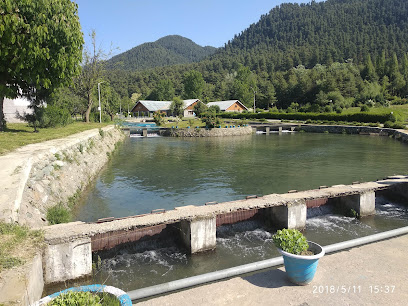
Hari Parbat
Discover the rich history and stunning vistas of Hari Parbat, a majestic fortress in Srinagar, Jammu and Kashmir, offering a unique glimpse into Kashmiri heritage.
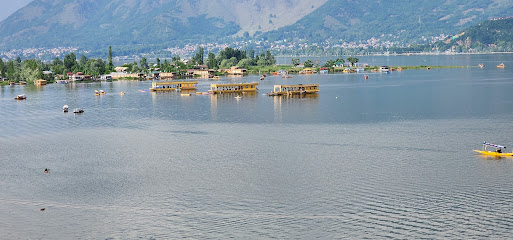
Aru Valley
Discover the breathtaking beauty of Aru Valley, a serene paradise in Jammu and Kashmir known for its stunning landscapes and vibrant culture.
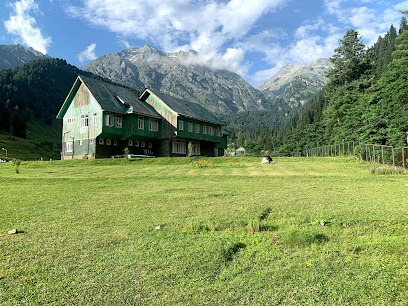
Aharbal Waterfall
Discover the breathtaking Aharbal Waterfall, a stunning natural wonder in Jammu and Kashmir, perfect for nature lovers and adventure seekers.
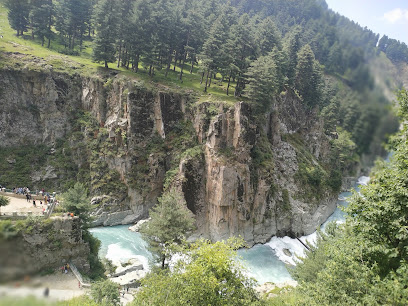
Dachigam National Park
Explore Dachigam National Park: A Wildlife Paradise in the Heart of Jammu and Kashmir, Home to Unique Flora and Fauna.
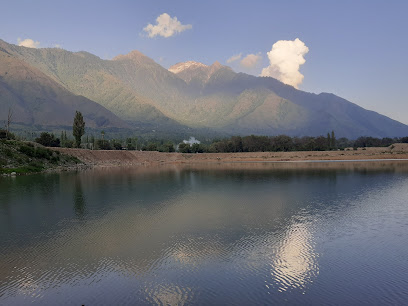
Badam Wari Park
Explore the enchanting beauty of Badam Wari Park, a serene garden in Srinagar, where vibrant flowers and stunning landscapes await every visitor.
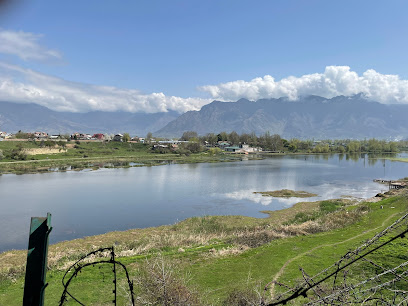
Sinthan Top
Discover the breathtaking beauty of Sinthan Top, a serene mountain pass in Jammu and Kashmir, perfect for adventure seekers and nature lovers alike.
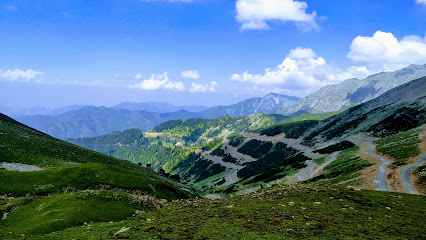
Mansar Lake
Discover the serene beauty of Mansar Lake, a breathtaking tourist attraction in Jammu and Kashmir, where nature meets culture.
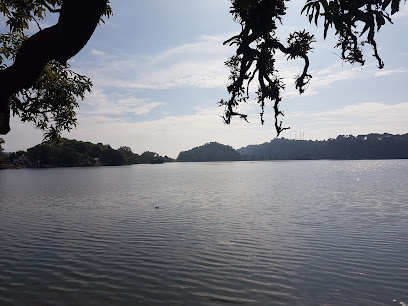
Dal lake
Discover the serene beauty of Dal Lake, the Jewel of Kashmir, where breathtaking landscapes and vibrant culture await every traveler.
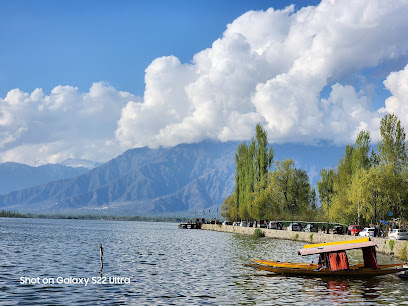
Char Chinar Dal lake
Experience the serene beauty of Char Chinar at Dal Lake, a picturesque park adorned with majestic Chinar trees and breathtaking views in the heart of Srinagar.
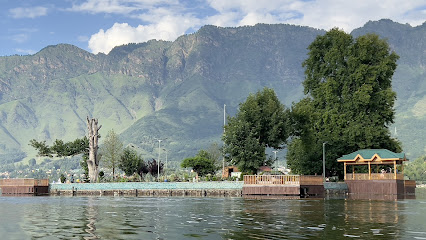
Manasbal Lake
Explore the tranquil beauty of Manasbal Lake in Kashmir, a serene retreat surrounded by stunning landscapes and rich biodiversity.
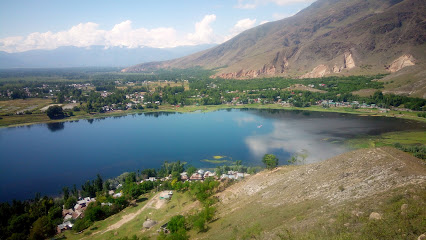
Wular Lake
Experience the breathtaking beauty and tranquility of Wular Lake, Kashmir's largest freshwater lake, a paradise for nature lovers and adventure seekers.
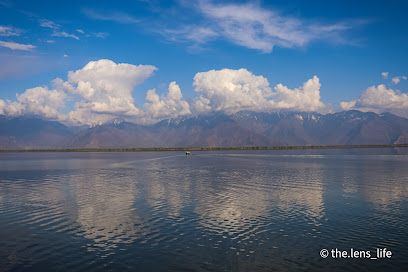
Unmissable attractions to see
Nishat Garden
Explore Nishat Garden, a stunning Mughal masterpiece in Srinagar with breathtaking views, lush landscapes, and rich cultural heritage.
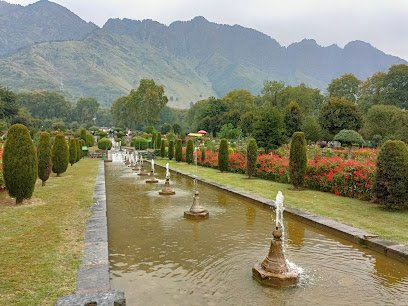
Tulip Garden Srinagar
Explore the breathtaking beauty of Asia's largest Tulip Garden in Srinagar, a vibrant spectacle of colors and serene landscapes.
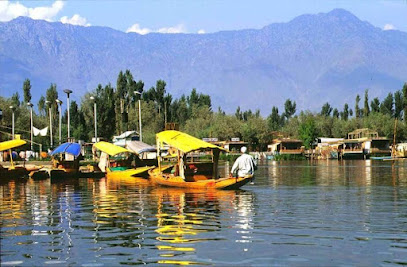
Cheshma Shahi Garden
Experience the serene beauty of Cheshma Shahi Garden, where vibrant landscapes and historic charm create an unforgettable escape in Srinagar.
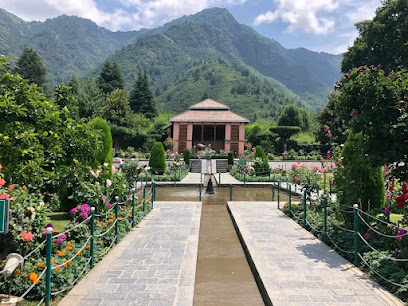
Pari Mahal
Explore the historical beauty of Pari Mahal, a Mughal-era garden palace boasting breathtaking views and serene landscapes in Srinagar.
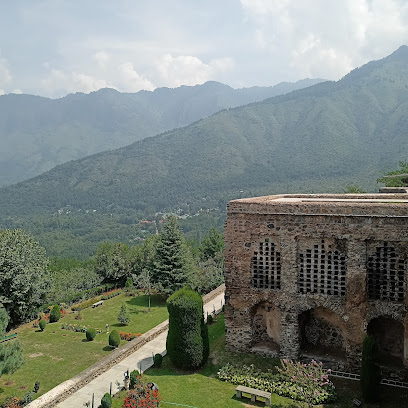
Sri Shankaracharya Temple
Experience the ancient spirituality and breathtaking views at Sri Shankaracharya Temple in Srinagar, a true gem of Jammu and Kashmir.
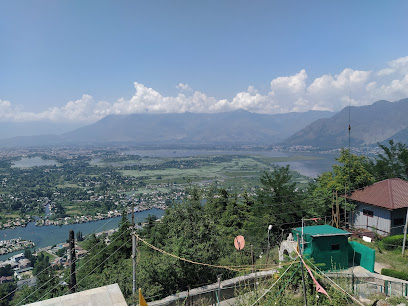
Overa Aru Wildlife Sanctuary
Explore the untouched beauty of Overa Aru Wildlife Sanctuary in Jammu and Kashmir, a paradise for wildlife lovers and nature enthusiasts.
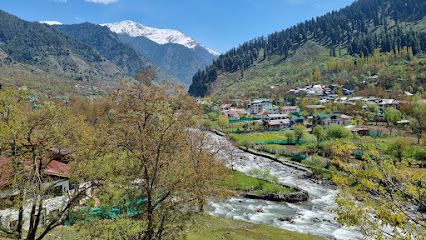
Botanical Garden, Kokernag
Explore the serene beauty of Botanical Garden in Kokernag, a stunning park rich in flora and tranquility, perfect for nature lovers and tourists.
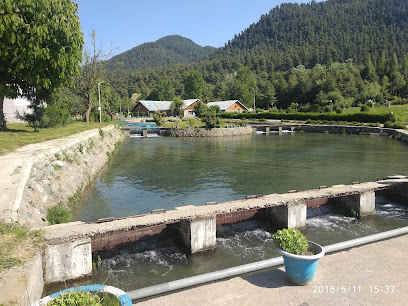
Hari Parbat
Discover the enchanting Hari Parbat in Srinagar, where history, beauty, and serenity converge amid breathtaking views and rich cultural heritage.
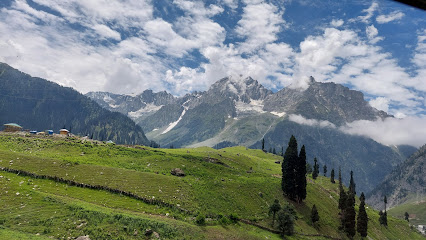
Sonamarg, Kashmir
Discover the breathtaking beauty of Sonamarg, the 'Meadow of Gold,' a perfect blend of adventure and tranquility in the heart of the Himalayas.
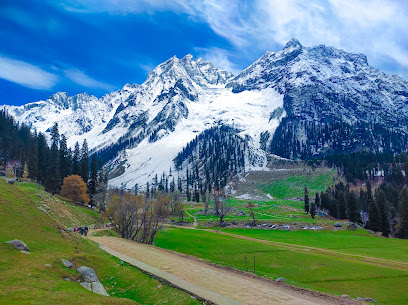
Harwan Garden
Explore the beauty of Harwan Garden in Jammu and Kashmir, a serene retreat adorned with vibrant flowers and stunning mountain views.
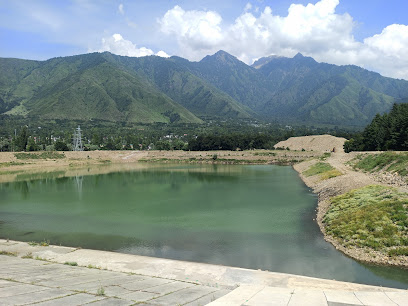
Aru Valley
Discover the tranquil beauty of Aru Valley, a breathtaking destination in Jammu and Kashmir, perfect for trekking and nature lovers alike.
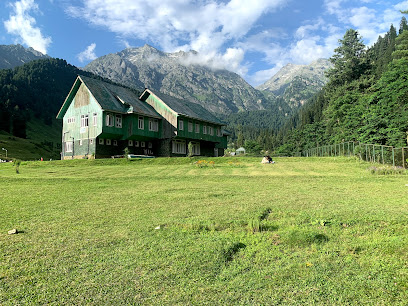
Dalgate
Experience the serene beauty of Dalgate, where the picturesque Dal Lake meets vibrant culture and delicious Kashmiri cuisine.
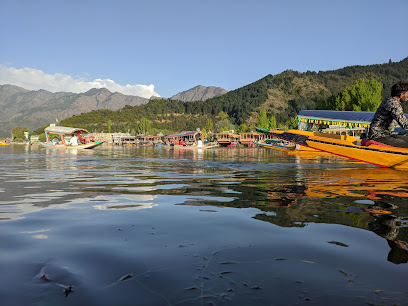
Aharbal Waterfall
Discover the breathtaking beauty of Aharbal Waterfall, a serene retreat in Jammu and Kashmir, perfect for nature lovers and adventurers alike.
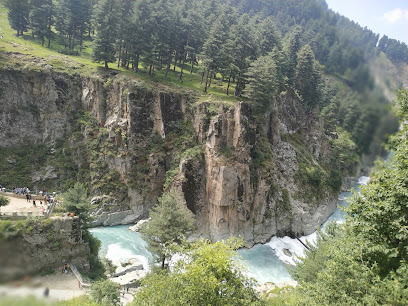
Dachigam National Park
Explore the natural beauty of Dachigam National Park, a sanctuary for wildlife enthusiasts and nature lovers in Jammu and Kashmir.
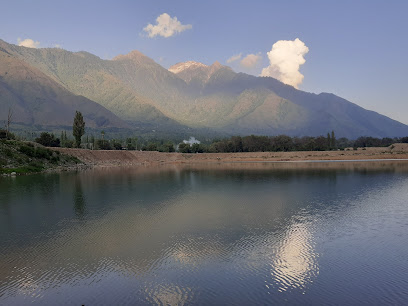
Badam Wari Park
Discover the beauty and tranquility of Badam Wari Park, a serene garden oasis in the heart of Srinagar, Jammu and Kashmir.
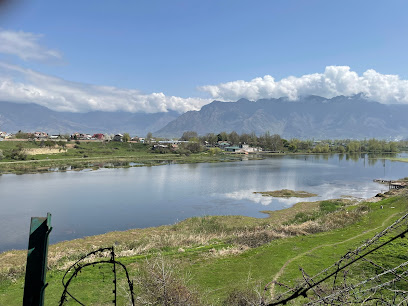
Essential places to dine
Stream Restaurant
Experience authentic Kashmiri cuisine at Stream Restaurant in Srinagar – where culinary tradition meets fine dining elegance amidst breathtaking views.
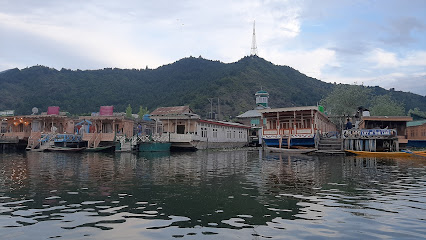
Ahdoos Restaurant
Discover the authentic taste of Kashmir at Ahdoos Restaurant in Srinagar, where tradition meets flavor in every dish.
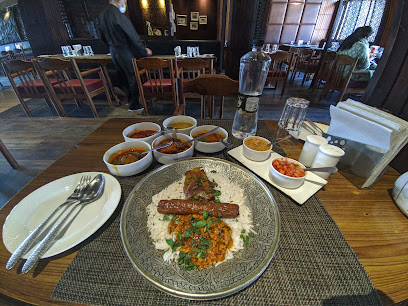
Lhasa
Discover the rich flavors of Tibetan, Kashmiri, and Chinese cuisine at Lhasa Restaurant in Srinagar's scenic Boulevard Road.
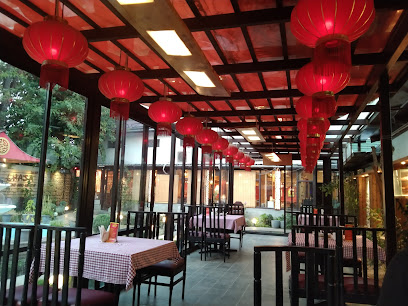
Shamyana Lodge & Restaurant
Discover tranquility and taste at Shamyana Lodge & Restaurant by Dal Lake – your gateway to Kashmiri hospitality.

Veg Restaurant - Kake Di Hatti Srinagar
Experience authentic vegetarian cuisine at Kake Di Hatti in Srinagar - where tradition meets taste!
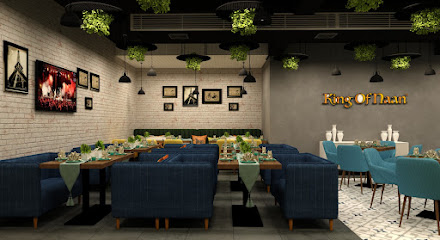
Bistro Boulevard by Pincer Foods - Best Restaurant in Srinagar| Top Restaurant in Srinagar
Experience the best of Kashmiri cuisine at Bistro Boulevard - where flavors meet tradition in the heart of Srinagar.
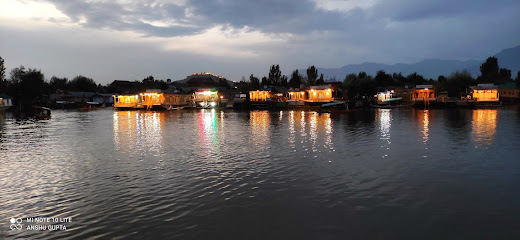
Sunset Boulevard restaurant - Best Restaurant in Shalimar Garden Road Srinagar/ Restaurant Near Me
Experience exquisite Indian and Kashmiri cuisine at Sunset Boulevard Restaurant in Srinagar – where every meal is a celebration of flavor.
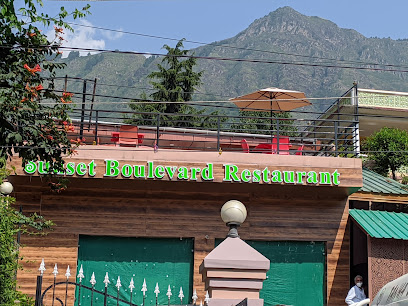
Kashmir Trout
Experience exquisite Kashmiri flavors at Kashmir Trout in Srinagar, where culinary excellence meets stunning natural beauty.
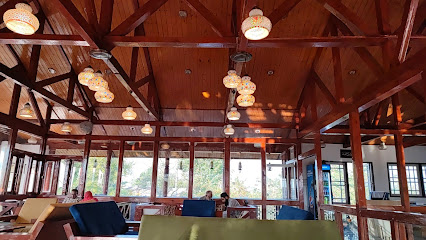
The Waterfront
Experience authentic Kashmiri flavors at The Waterfront, where exquisite dishes meet breathtaking lakeside views in Srinagar.
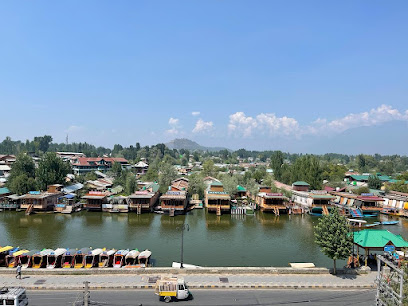
Arya magotra Blue sawan palace Indian restaurant
Discover authentic Indian flavors at Arya Magotra Blue Sawan Palace by Mansar Lake – a must-visit for every food lover.
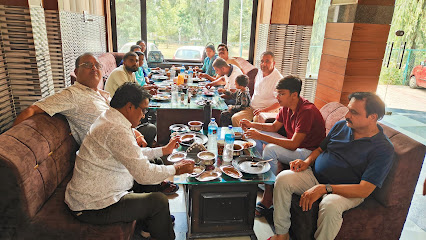
Bollywood Curry - Kashmir
Experience authentic Indian flavors at Bollywood Curry, where delicious cuisine meets stunning views of Dal Lake in Srinagar.
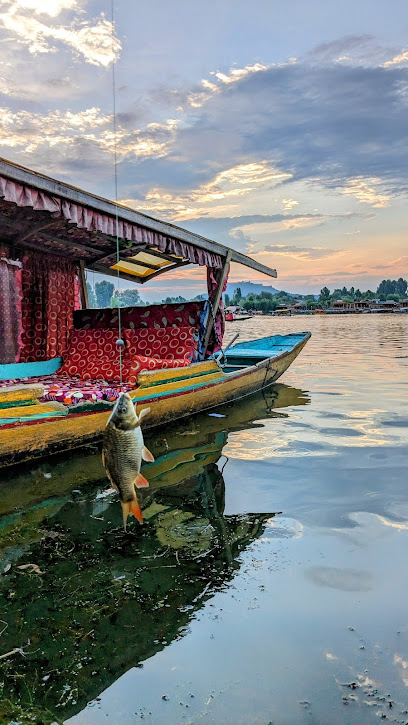
Royal Crest :The Taste Of Kashmir
Experience authentic Kashmiri cuisine at Royal Crest - where every dish tells a story amidst breathtaking landscapes.
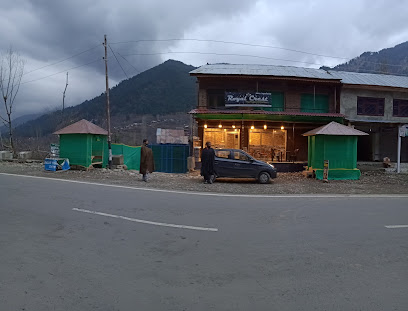
Valley Dish land Hotel and Restaurant
Experience authentic Indian cuisine amidst the stunning landscapes of Jammu and Kashmir at Valley Dish Land Hotel and Restaurant.
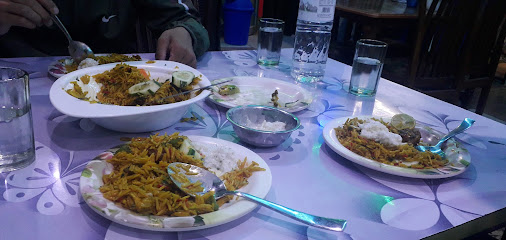
Zaitoon the restaurant
Experience authentic Kashmiri flavors at Zaitoon in Srinagar—where every dish tells a story.
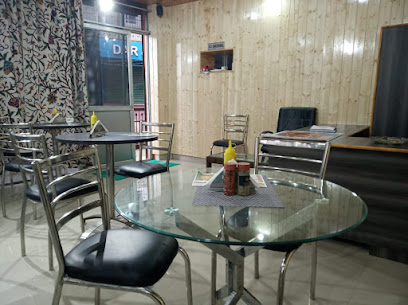
Kashmir Holidays
Savor authentic Kashmiri vegetarian cuisine at Kashmir Holidays – where every dish tells a story!
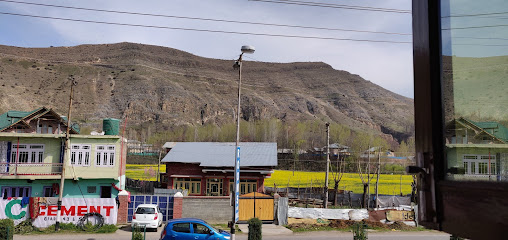
Markets, malls and hidden boutiques
Shah Kashmir Arts Emporium
Explore the vibrant craftsmanship of Kashmir at Shah Kashmir Arts Emporium, a premier destination for authentic handicrafts and cultural treasures.
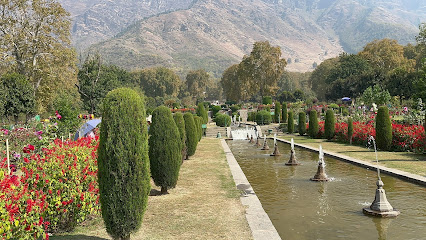
Pick n Choose
Discover the vibrant local flavors and artisanal products at Pick n Choose, your go-to grocery store in Srinagar, Jammu and Kashmir.

POLO VIEW MARKET
Experience the essence of Kashmir at Polo View Market, a vibrant hub of handicrafts, textiles, and local delicacies in Srinagar.
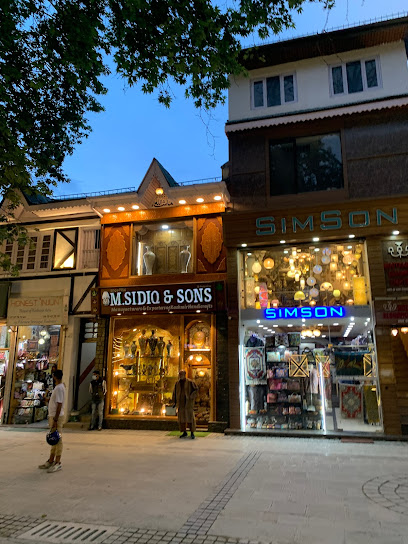
Sangar Mall
Experience the best shopping in Srinagar at Sangar Mall, where local culture meets modern retail in a vibrant atmosphere.
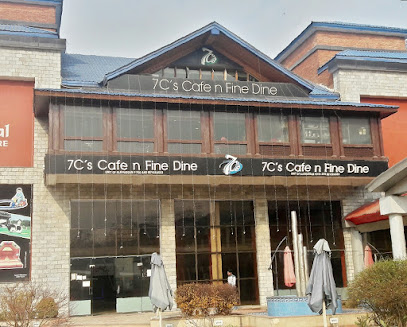
Paradise handloom & handcrafted emporium
Explore the exquisite craftsmanship of Kashmir at Paradise Handloom & Handcrafted Emporium, a vibrant market for clothing and unique handcrafted treasures.
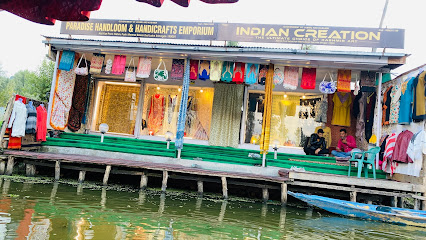
Chinar Mega Mall
Explore Chinar Mega Mall in Srinagar for a unique shopping experience blending local charm and modern retail in the heart of Kashmir.
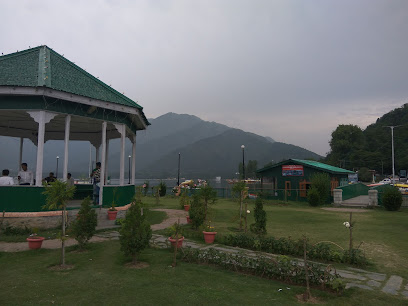
Kashmir Book Depot
Discover a literary treasure trove at Kashmir Book Depot, a paradise for book lovers in the heart of Srinagar, offering diverse selections and local narratives.
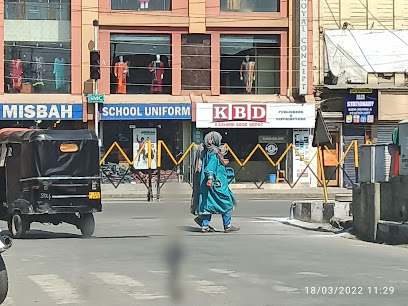
Naresh Shopping Centre
Explore the flavors of Jammu at Naresh Shopping Centre, Katra's top spot for premium dry fruits and local delicacies.
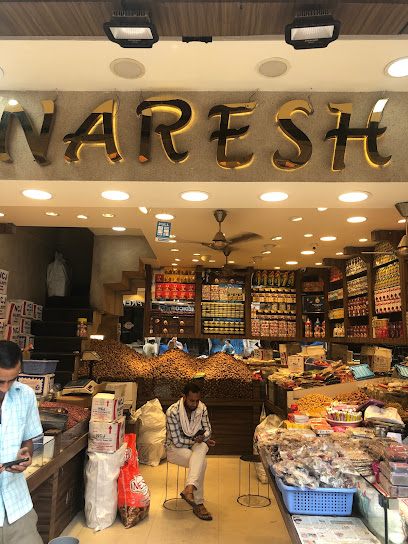
Craftastic Cashmere
Explore Craftastic Cashmere, Srinagar's premier scrapbooking store, and indulge in creativity with local artisanal supplies and workshops.
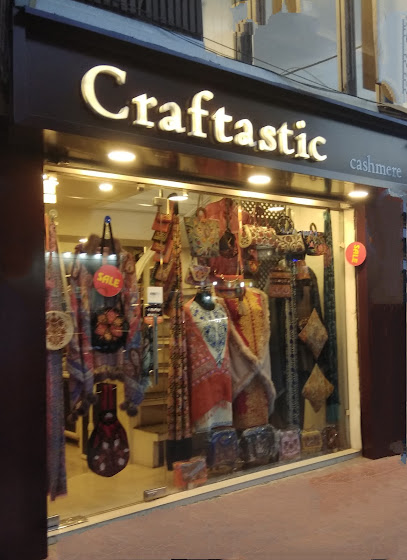
Floating Vegetable Market (SM)
Discover the vibrant Floating Vegetable Market on Dal Lake, where fresh produce meets stunning scenery in Srinagar.
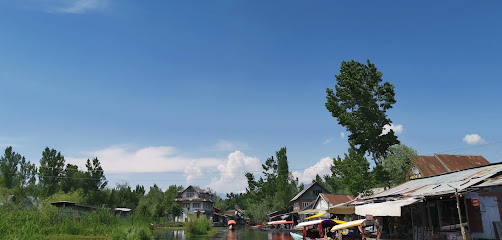
Paper Mache Handicraft Manufacture in india
Explore the exquisite artistry of paper mache at Srinagar's premier handicraft center, where tradition and creativity thrive.
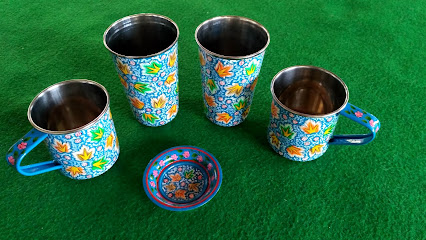
Saklain's Coterie
Explore the beauty of Kashmir with organic products at Saklain's Coterie, your go-to shop for authentic local delicacies and cosmetics.
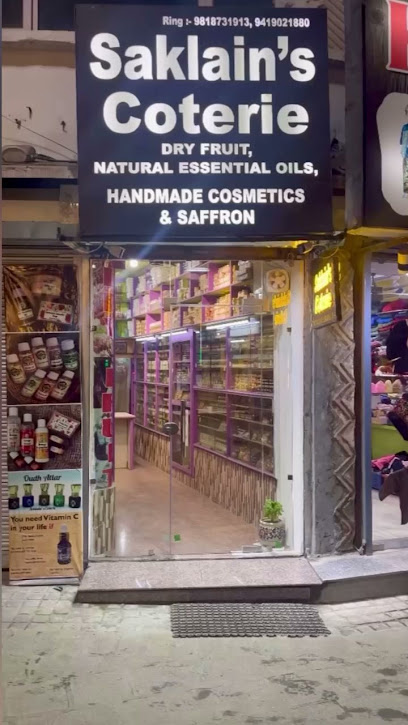
Kashmir Government Arts Emporium
Discover the exquisite artistry of Kashmir at the Government Arts Emporium, where authentic handicrafts meet rich cultural heritage.
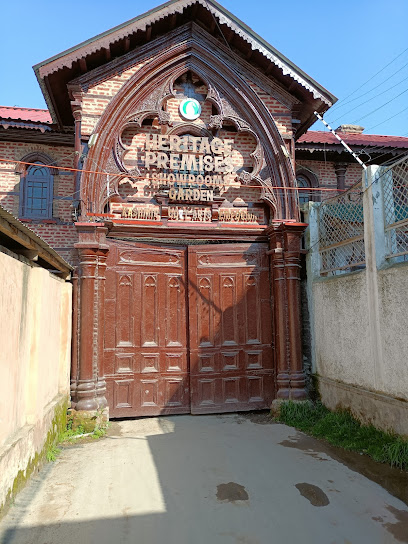
Suffering Moses
Explore the artistry of Srinagar at Suffering Moses, where local crafts come to life in a charming shopping experience.
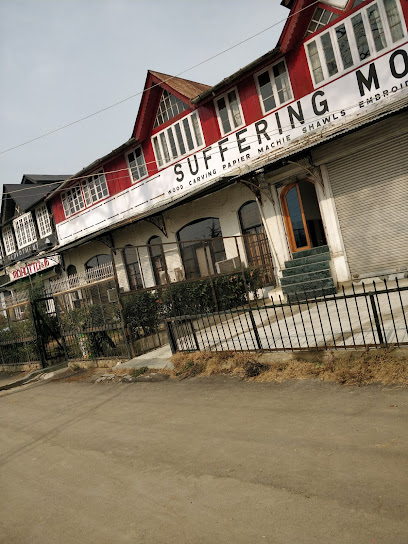
PUMA Store
Explore premium sportswear at the PUMA Store in Srinagar, perfectly located near Dal Lake for a stylish shopping experience.

Essential bars & hidden hideouts
Stream Restaurant
Discover the rich flavors of Kashmiri cuisine at Stream Restaurant, a fine dining gem overlooking the breathtaking Dal Lake in Srinagar.
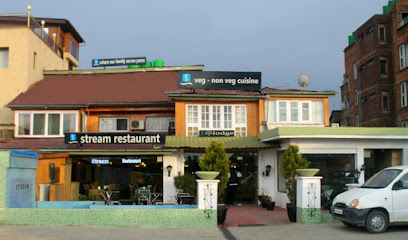
Mughal Darbar
Experience the authentic taste of Mughlai cuisine at Mughal Darbar, a culinary landmark in the heart of Srinagar, Jammu and Kashmir.
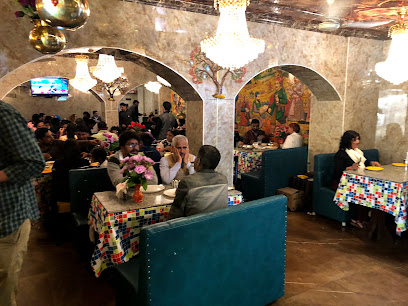
Aharbal Waterfall
Discover the beauty of Aharbal Waterfall, a stunning natural attraction in Jammu and Kashmir, perfect for relaxation and adventure.
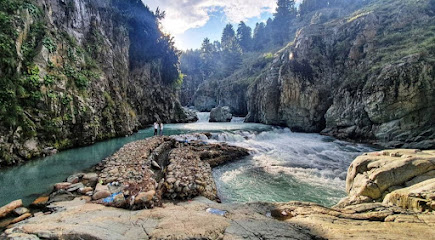
Lhasa
Experience the rich flavors of Tibetan and Kashmiri cuisine at Lhasa, a culinary delight in the heart of Srinagar.
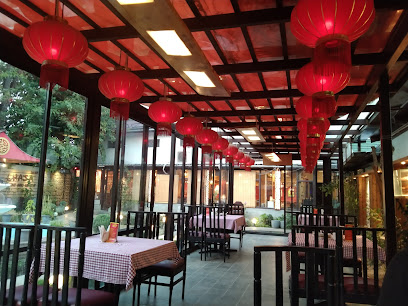
Paahun The Executive Lounge
Experience the tranquil charm of Paahun The Executive Lounge, a perfect retreat for travelers in the heart of Srinagar, Jammu and Kashmir.
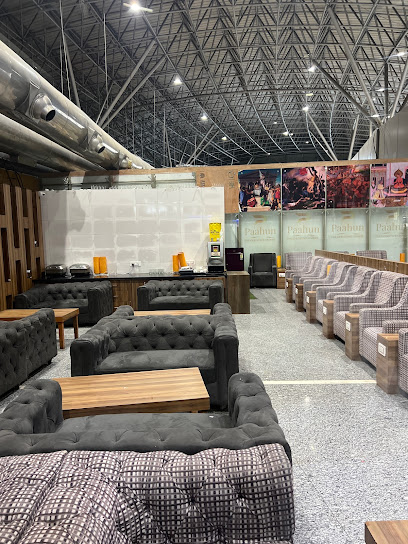
Books & Bricks Cafe
Experience the charm of Srinagar at Books & Bricks Cafe, where delicious food meets a cozy atmosphere in the heart of the city.
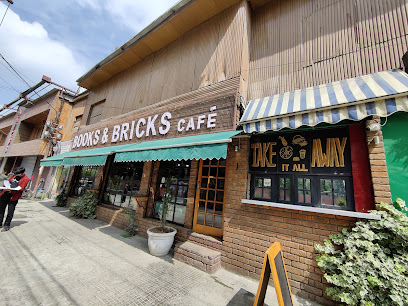
Little Persia
Experience the rich flavors of Persian cuisine at Little Persia, a delightful restaurant in Srinagar's Chinar Bagh.
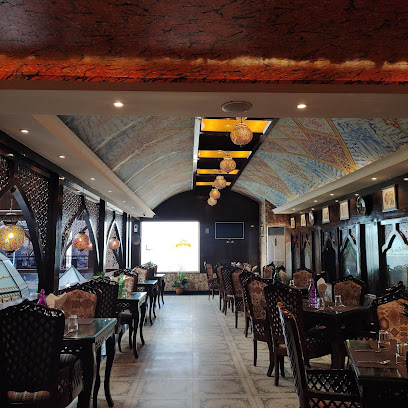
The Grandstand (Restaurant & Sports Bar)
Experience the thrill of sports and delightful cuisine at The Grandstand, Jammu's premier restaurant and sports bar.
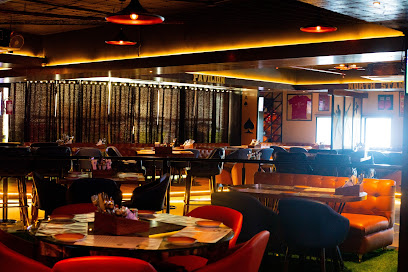
Papparoti Srinagar
Discover the charm of Papparoti Srinagar, where coffee meets culinary excellence in a cozy family-friendly setting.
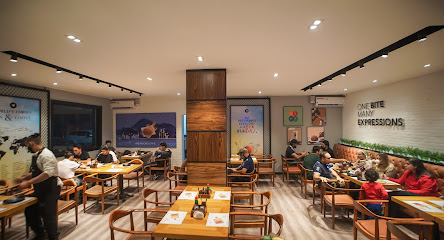
7C’s Cafe N Fine Dine
Discover the culinary gem of Srinagar at 7C’s Cafe N Fine Dine, where Kashmiri flavors meet gourmet dining in a stunning mall setting.
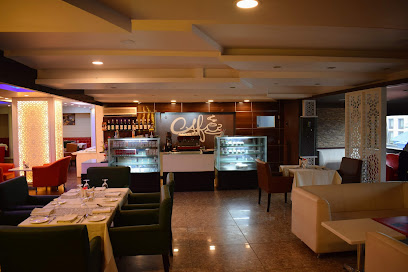
FAT PANDA
Experience the best of Chinese and Thai cuisine at Fat Panda in Srinagar, where every dish is a celebration of flavor and culture.
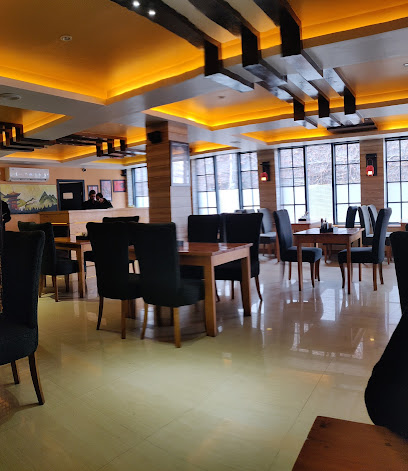
BIZZA Café Heritage
Experience the vibrant culinary scene of Srinagar at BIZZA Café Heritage, where delicious pizzas and aromatic coffees await in a cozy ambiance.
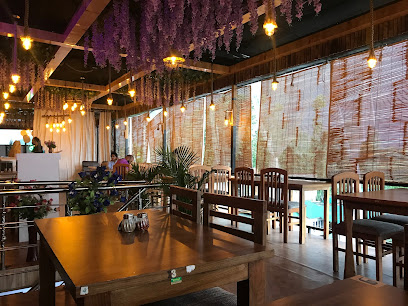
Cafe Same Place
Discover the charm of Café Same Place in Srinagar, where delicious coffee and delightful meals await in a cozy atmosphere.
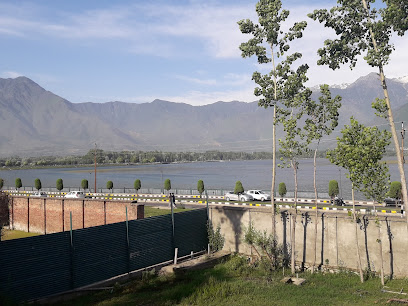
Kashmir Bar And Restaurant
Discover the vibrant flavors of Jammu at Kashmir Bar And Restaurant, where delicious grills meet a lively bar atmosphere.
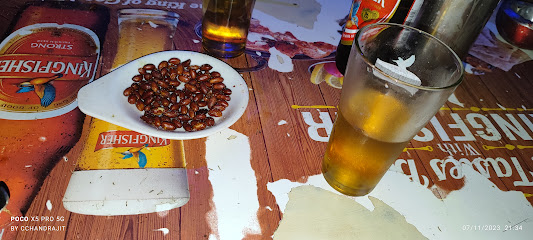
The Waterfront
Discover the flavors of Kashmir at The Waterfront, a premier dining spot overlooking the stunning Dal Lake.
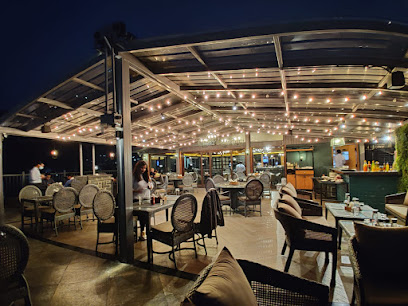
Local Phrases about Kashmir Great Lakes
-
- Helloनमस्ते
[namaste] - Goodbyeखुदाहाफिज
[khudāhāfiz] - Yesहां
[hāṁ] - Noनहीं
[nahīṁ] - Please/You're welcomeमेहरबानी करके/आपका स्वागत है
[meharbānī karke/āpka svāgat hai] - Thank youधन्यवाद
[dhanyavād] - Excuse me/Sorryमाफ़ कीजिए/माफ़ी मांगना
[māf kījie/māfī māngnā] - How are you?कैसे हैं आप?
[kaise hai aap?] - Fine. And you?ठीक हूँ। आप?
[ṭhīk hū̃. āp?] - Do you speak English?क्या आप अंग्रेज़ी बोलते हैं?
[kyā āp aṅgrezī bolte haiṅ?] - I don't understandमुझे समझ में नहीं आया
[mujhe samajh meṅ nahī̃ āyā]
- Helloनमस्ते
-
- I'd like to see the menu, pleaseकृपया मेन्यू दिखाइए
[kr̥payā menyū dikhāiye] - I don't eat meatमैं मांस नहीं खाता/खाती
[maiṅ māns nahī̃ khātā/khātī] - Cheers!चियर्स!
[ciyars!] - I would like to pay, pleaseकृपया मुझे भुगतान करने दें
[kr̥payā mujhe bhugatān karne deṅ]
- I'd like to see the menu, pleaseकृपया मेन्यू दिखाइए
-
- Help!मदद!
[madad!] - Go away!चले जाओ!
[cale jāo!] - Call the Police!पुलिस को बुलाओ!
[pulīs ko bulāo!] - Call a doctor!डॉक्टर को बुलाओ!
[ḍākṭar ko bulāo!] - I'm lostमैं खो गया/गई हूँ
[maiṅ kho gayā/gaī hū̃] - I'm illमुझे बीमारी है
[mujhe bīmārī hai]
- Help!मदद!
-
- I'd like to buy...मैं ... खरीदना चाहूँगा/चाहूँगी
[maiṅ ... kharīdnā cāhū̃gā/cāhū̃gī] - I'm just lookingमैं सिर्फ देख रहा/रही हूँ
[maiṅ sirf dekh rahā/rahī hū̃] - How much is it?यह कितने का है?
[yah kitne kā hai?] - That's too expensiveयह बहुत महंगा है
[yah bahut mahangā hai] - Can you lower the price?क्या आप कीमत कम कर सकते हैं?
[kyā āp kīmat kam kar sakte haiṅ?]
- I'd like to buy...मैं ... खरीदना चाहूँगा/चाहूँगी
-
- What time is it?समय क्या है?
[samay kyā hai?] - It's one o'clockएक बजे हैं
[ek baje haiṅ] - Half past (10)दस बजकर पौने
[das bajkar paune] - Morningसुबह
[subah] - Afternoonदोपहर
[dopahar] - Eveningशाम
[shām] - Yesterdayकल
[kal] - Todayआज
[āj] - Tomorrowकल
[kal] - 1एक
[ek] - 2दो
[do] - 3तीन
[tīn] - 4चार
[cār] - 5पाँच
[pā̃c] - 6छह
[chhah] - 7सात
[sāt] - 8आठ
[āṭh] - 9नौ
[nau] - 10दस
[das]
- What time is it?समय क्या है?
-
- Where's a/the...?यहाँ ... कहाँ है?
[yahā̃ ... kahā̃ hai?] - What's the address?पता क्या है?
[patā kyā hai?] - Can you show me (on the map)?क्या आप मुझे दिखा सकते हैं (नक्शे पर)?
[kyā āp mujhe dikhā sakte haiṅ (nakśe par)?] - When's the next (bus)?अगली (बस) कब है?
[aglī (bas) kab hai?] - A ticket (to ....)एक टिकट (.... के लिए)
[ek ṭikaṭ (.... ke lie)]
- Where's a/the...?यहाँ ... कहाँ है?
History of Kashmir Great Lakes
-
The Kashmir Great Lakes region is steeped in folklore and ancient legends. One of the most notable myths is that of Harmukh, a prominent peak near Gangbal Lake. It is often associated with Lord Shiva and is believed to be the abode of the deity. Local communities and pilgrims have long revered this area, considering it a sacred space where the divine is ever-present.
-
The strategic location of the Kashmir Great Lakes has made it a significant passageway for ancient trade routes. Historically, it served as a crucial link between the Indian subcontinent and Central Asia. Archaeological evidence suggests that nomadic tribes and early settlers traversed these paths, establishing temporary settlements and facilitating trade of goods like silk, spices, and precious stones.
-
The Mughal emperors, captivated by the beauty of Kashmir, made significant contributions to its cultural and architectural landscape. Emperor Jahangir, in particular, was enchanted by the lakes and their surroundings. His reign saw the construction of exquisite gardens and rest houses (sarais) along these picturesque landscapes, blending Persian aesthetics with local artistry.
-
During the British colonial period, the Kashmir Great Lakes became a subject of fascination for explorers and cartographers. British officers and surveyors undertook detailed mapping and documentation of the region. Their efforts not only enhanced geographical understanding but also paved the way for future trekking and exploration activities, making the lakes more accessible to adventurers.
-
In contemporary times, the Kashmir Great Lakes have emerged as a premier trekking destination. The modern trails, established in the mid-20th century, attract trekkers and nature enthusiasts from around the globe. This period also saw the development of infrastructure to support trekking activities, including campsites and organized tours, thus integrating the lakes into the larger tourism framework of Kashmir.
Kashmir Great Lakes Essentials
-
The Kashmir Great Lakes are located in the Indian state of Jammu and Kashmir. The nearest major airport is Srinagar International Airport (SXR), approximately 70 kilometers away from the starting point of the trek in Sonamarg. From Srinagar, you can hire a taxi or take a shared cab to reach Sonamarg. The road journey typically takes around 2 to 3 hours. Public buses also operate from Srinagar to Sonamarg, but they may be less comfortable and take longer.
-
Once in Sonamarg, the primary mode of transportation for the trek is on foot. The Kashmir Great Lakes trek is a multi-day hike requiring physical fitness and preparation. Porters and mules are available for hire to carry heavy luggage. For local travel within Sonamarg and Srinagar, taxis and shared cabs are the most convenient options. Public buses and minibuses (matadors) are also available but may not be as comfortable or frequent.
-
The official currency in India is the Indian Rupee (INR). Credit cards are accepted in some hotels, restaurants, and shops in Srinagar but are less likely to be accepted in remote areas like Sonamarg. It is advisable to carry sufficient cash for the trek, especially in smaller denominations. ATMs are available in Srinagar, but it is wise to withdraw enough cash before heading to Sonamarg.
-
Kashmir Great Lakes is generally safe for tourists, but standard precautions should be taken. Avoid wandering alone, especially at night, and keep an eye on your belongings. While Srinagar has a visible security presence, tourists are advised to stay updated on the local situation. It is advisable to avoid areas with political unrest and large gatherings. Be cautious and respectful when interacting with locals.
-
In case of an emergency, dial 112 for immediate assistance. Medical facilities are available in Srinagar, and there are basic medical camps along the trek route. It is highly recommended to have travel insurance that covers medical emergencies and evacuation. Carry a basic first aid kit and any essential medications. For minor health issues, pharmacies are available in Srinagar.
-
Fashion: Do dress modestly, especially in rural and religious areas. Avoid wearing revealing clothing. Religion: Do respect local customs and traditions. Remove your shoes when entering religious sites. Public Transport: Do be respectful and give up your seat to elderly passengers. Don't eat or drink on public transport. Greetings: Do greet people with a handshake or a respectful nod. Avoid hugging or kissing as greetings. Eating & Drinking: Do try local delicacies and accept food offerings graciously. Don't refuse hospitality, as it is considered impolite.
-
To experience Kashmir Great Lakes like a local, interact with the local shepherds and villagers along the trek. Visit local markets in Srinagar to buy traditional Kashmiri handicrafts and saffron. Engage in conversations with locals to learn about their culture and history. Don't miss trying Kashmiri Kahwa (a traditional tea) and Wazwan (a multi-course meal). Respect the natural environment by not littering and following eco-friendly practices.
Nearby Cities to Kashmir Great Lakes
-
Things To Do in Naran
-
Things To Do in Kaghan
-
Things To Do in Jammu
-
Things To Do in Murree
-
Things To Do in Abbottabad
-
Things To Do in Gilgit
-
Things To Do in Leh
-
Things To Do in Sialkot
-
Things To Do in Islamabad
-
Things To Do in Rawalpindi
-
Things To Do in Gujranwala
-
Things To Do in Swat
-
Things To Do in Manali
-
Things To Do in Amritsar
-
Things To Do in Lahore










